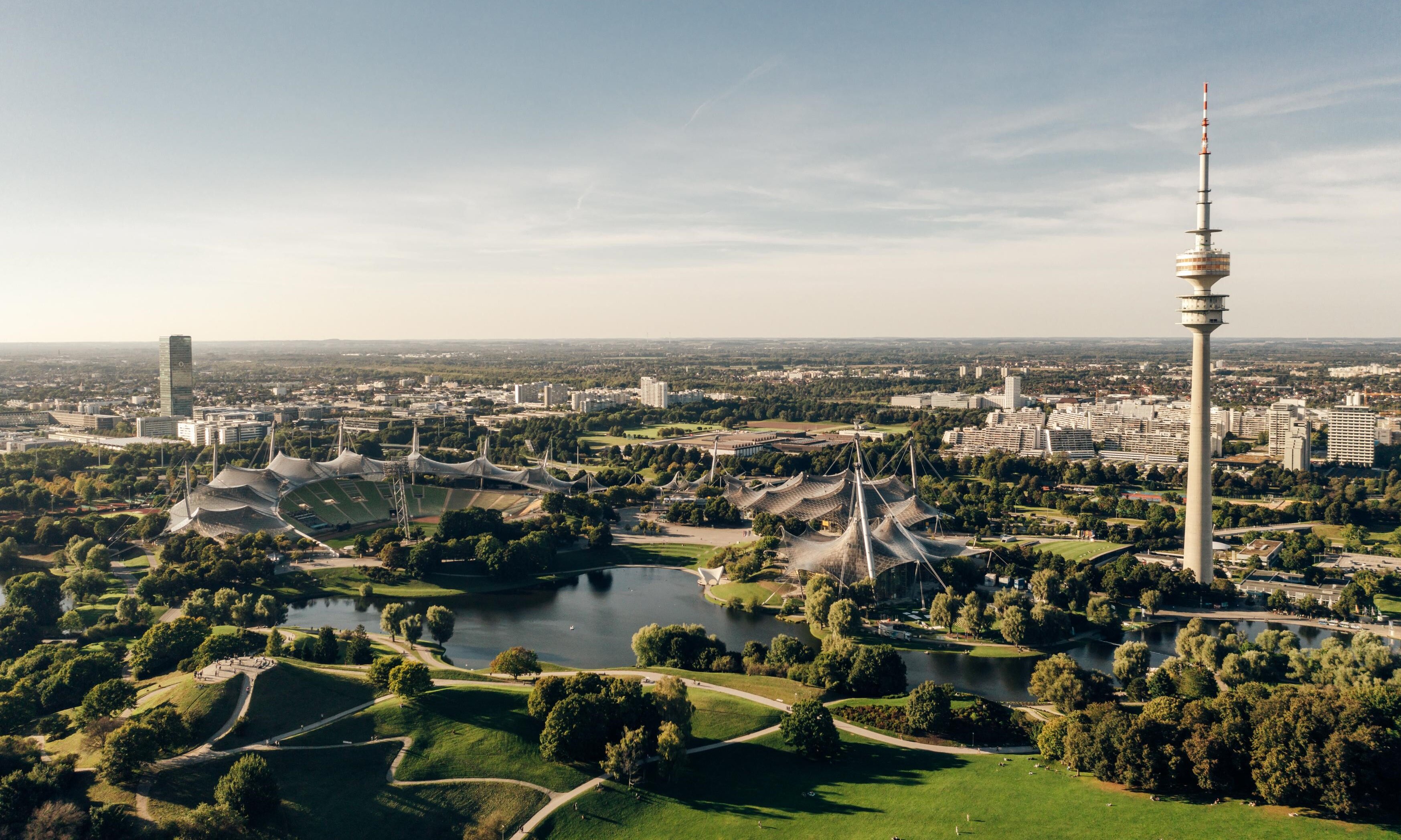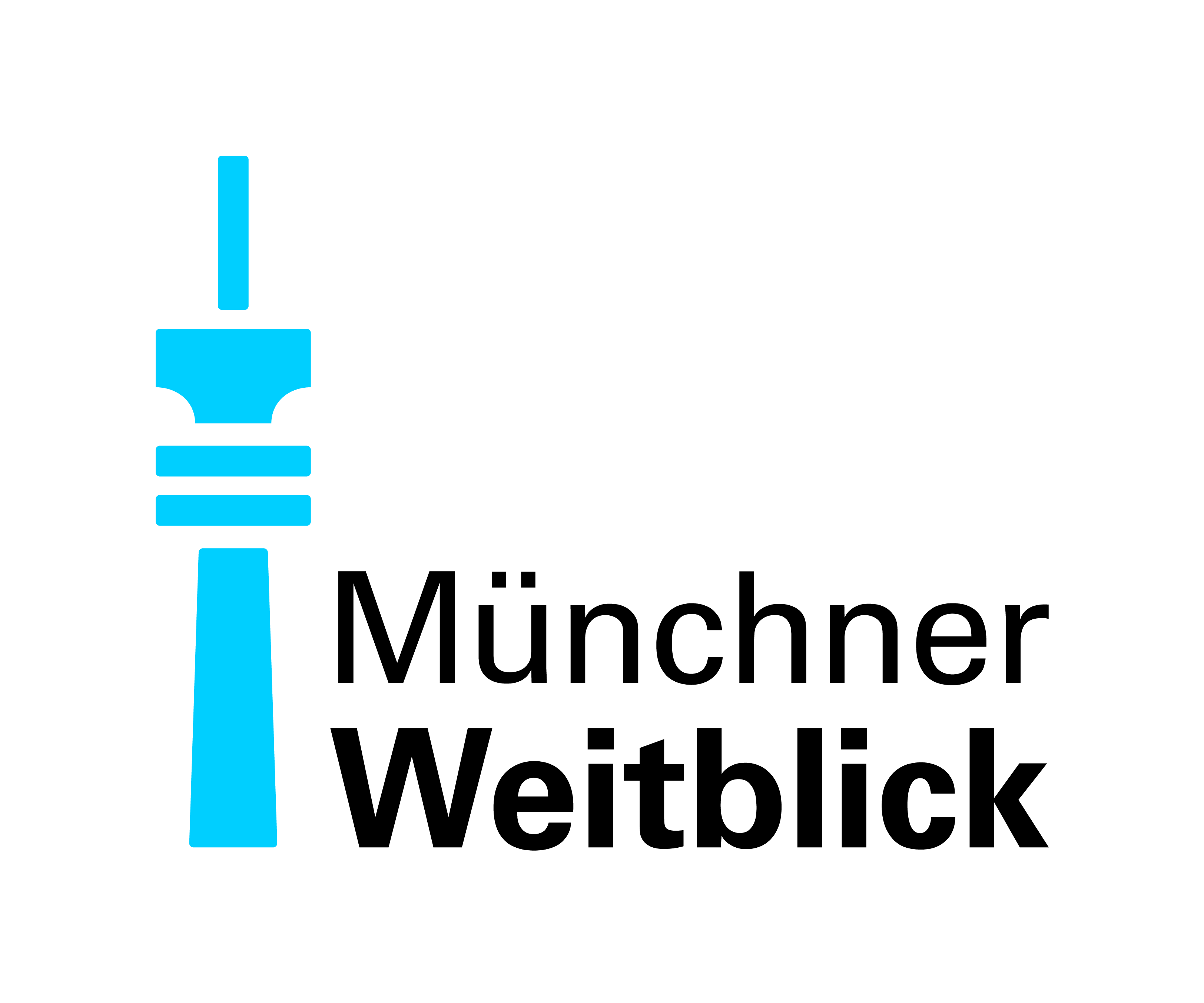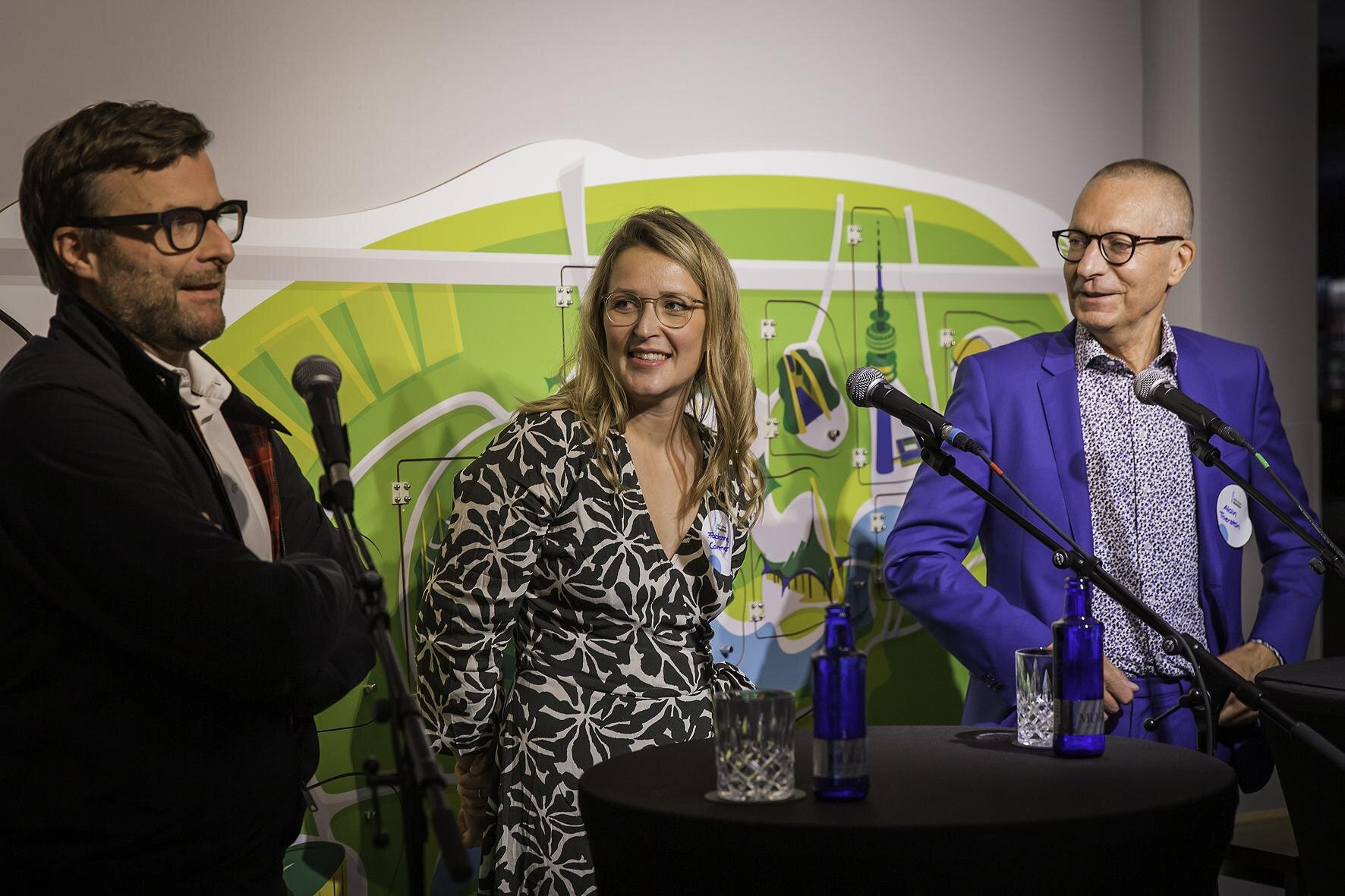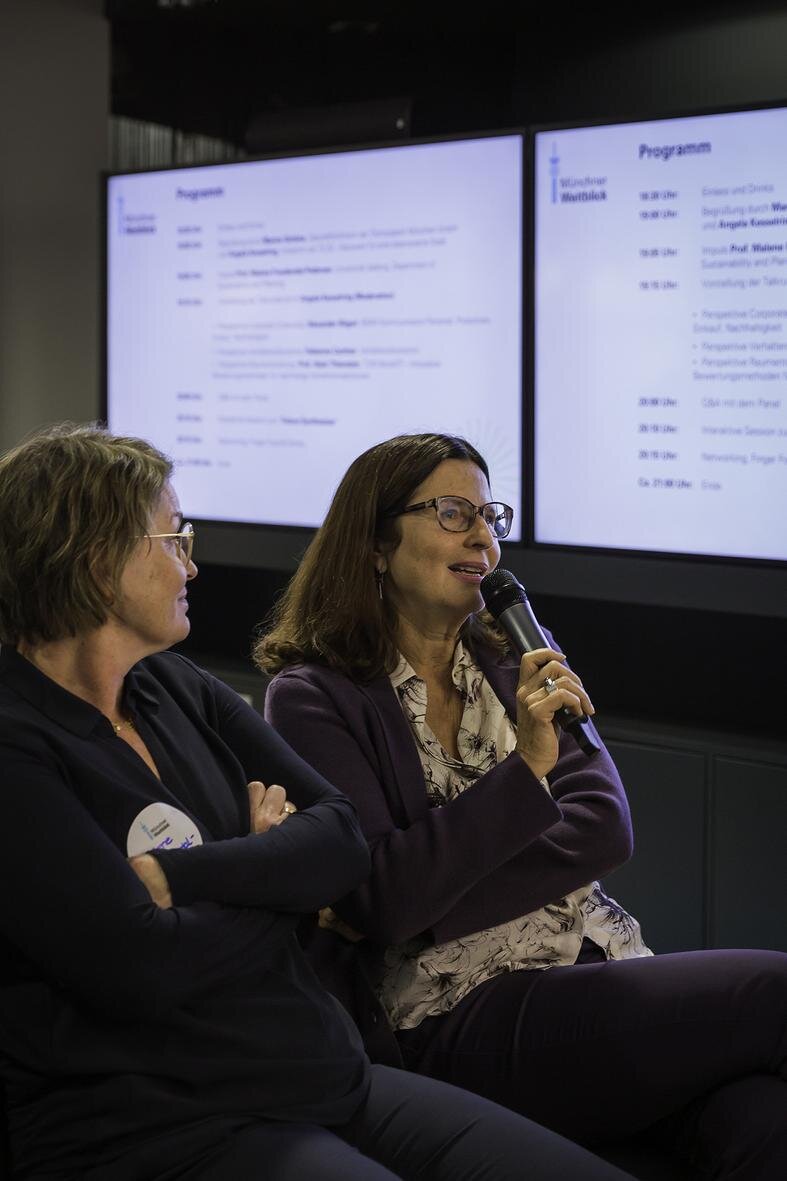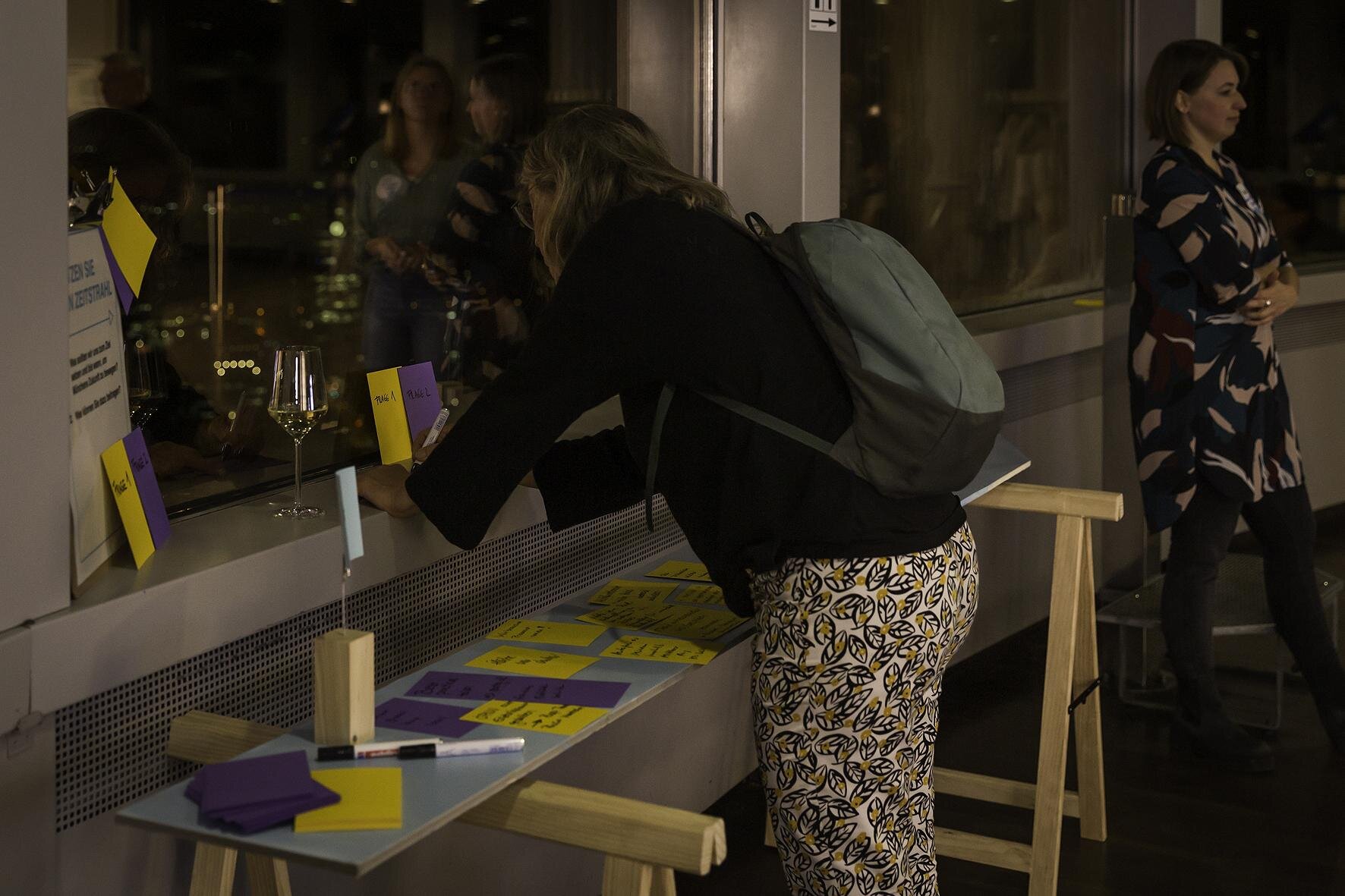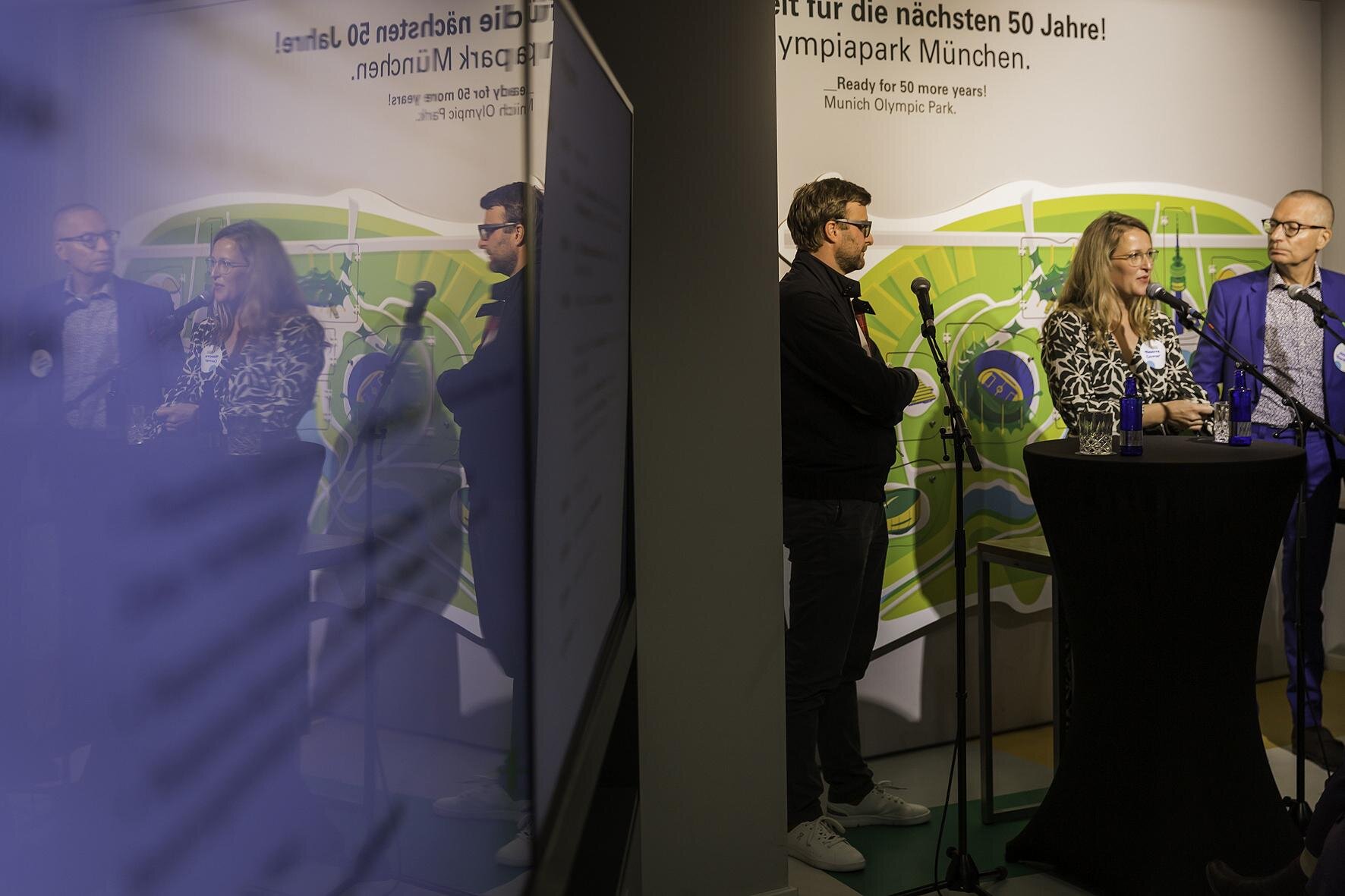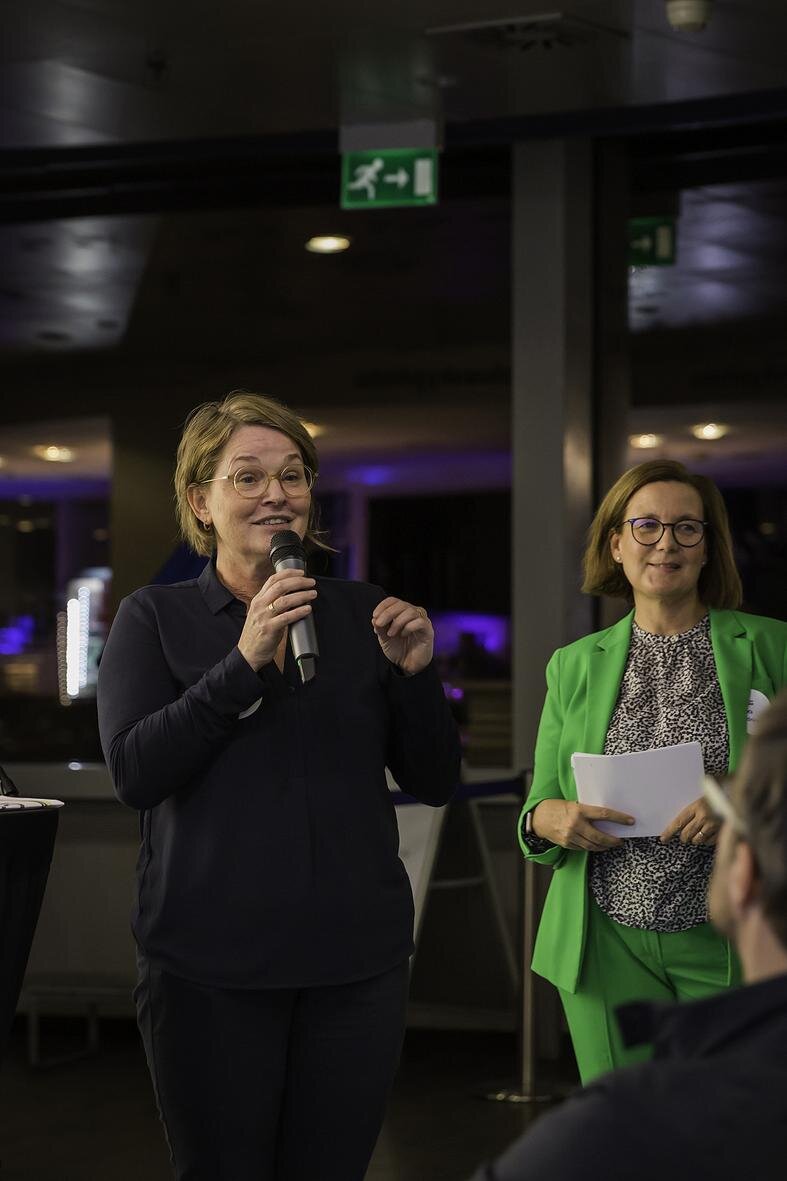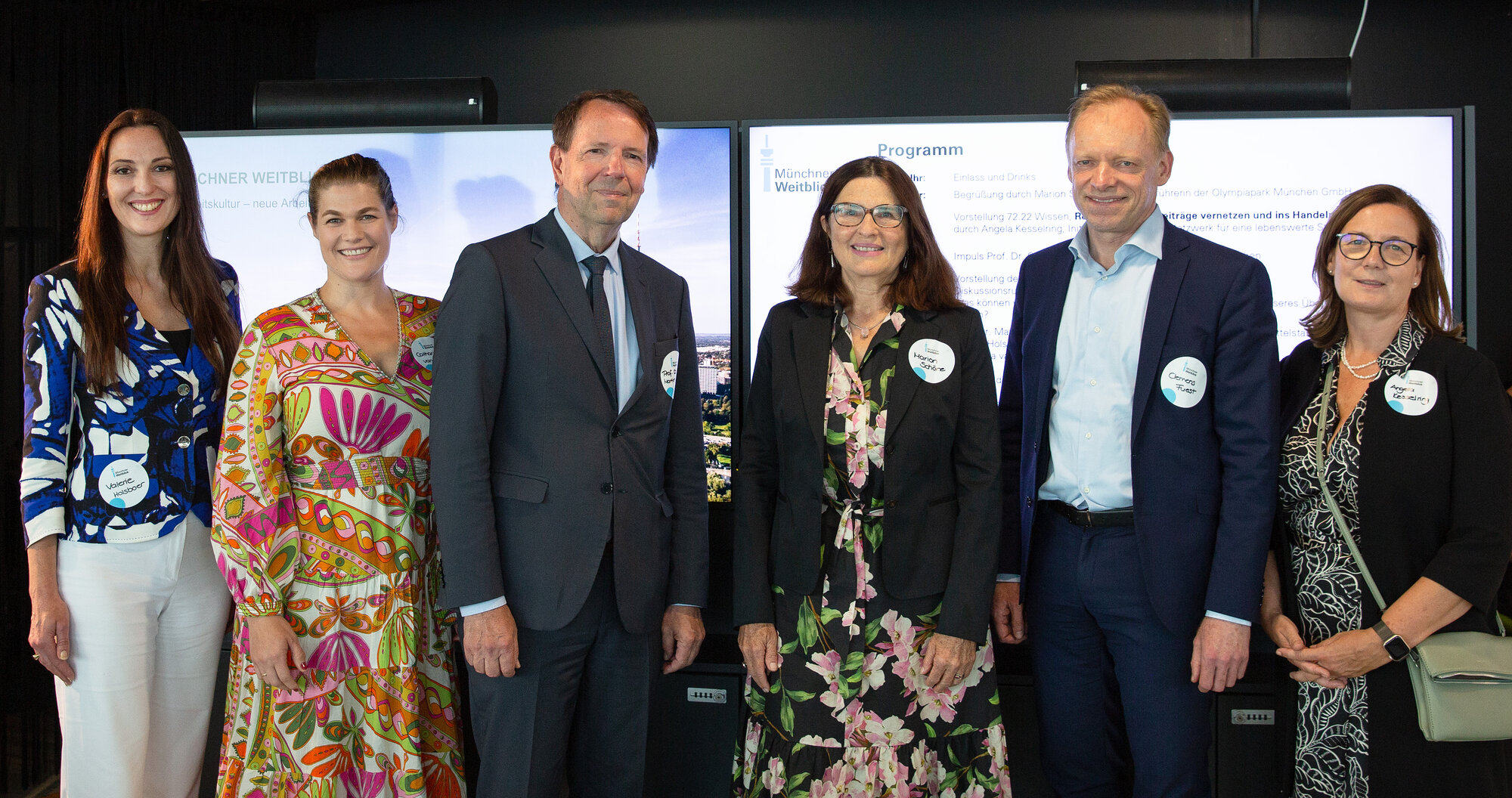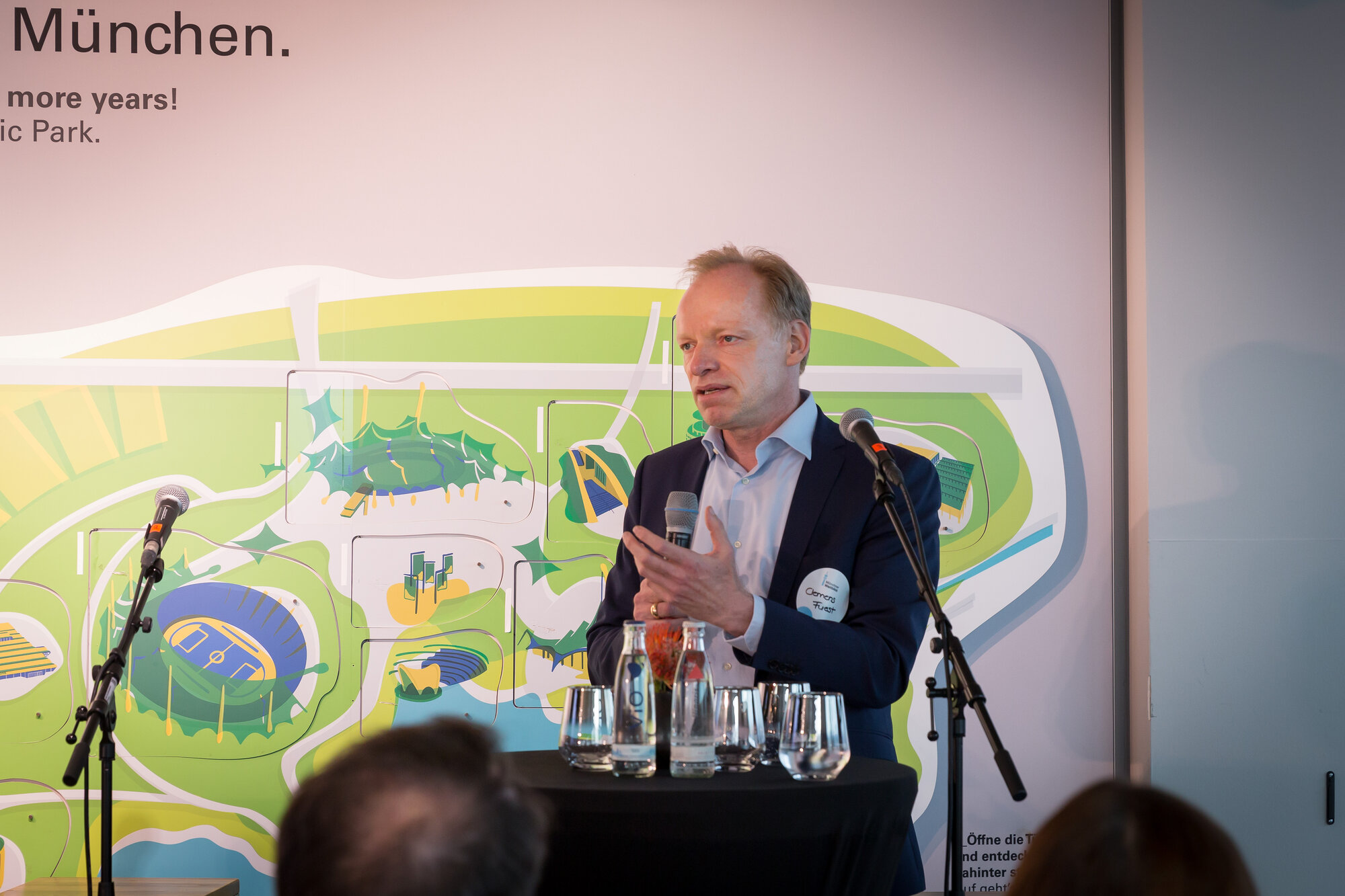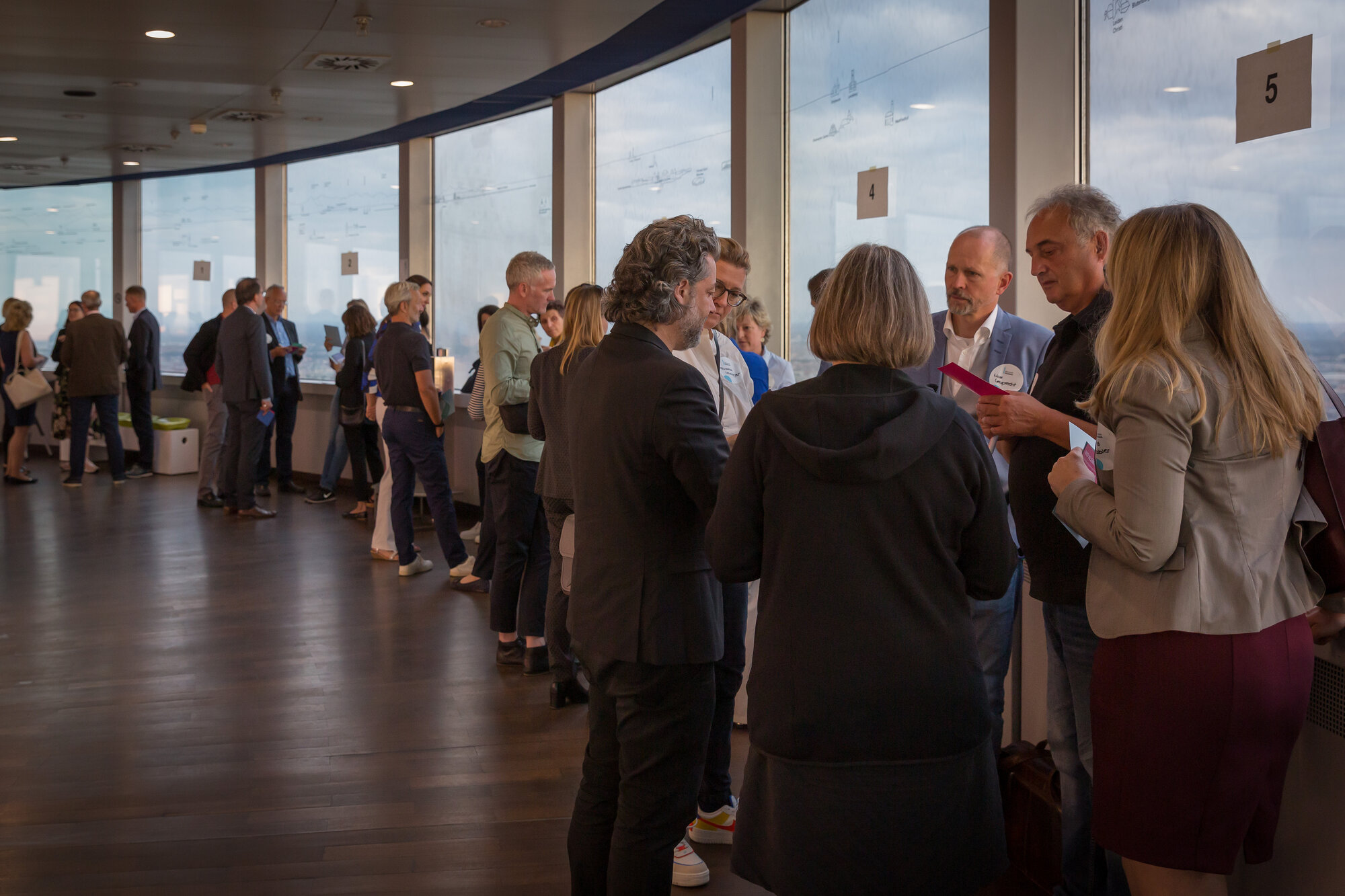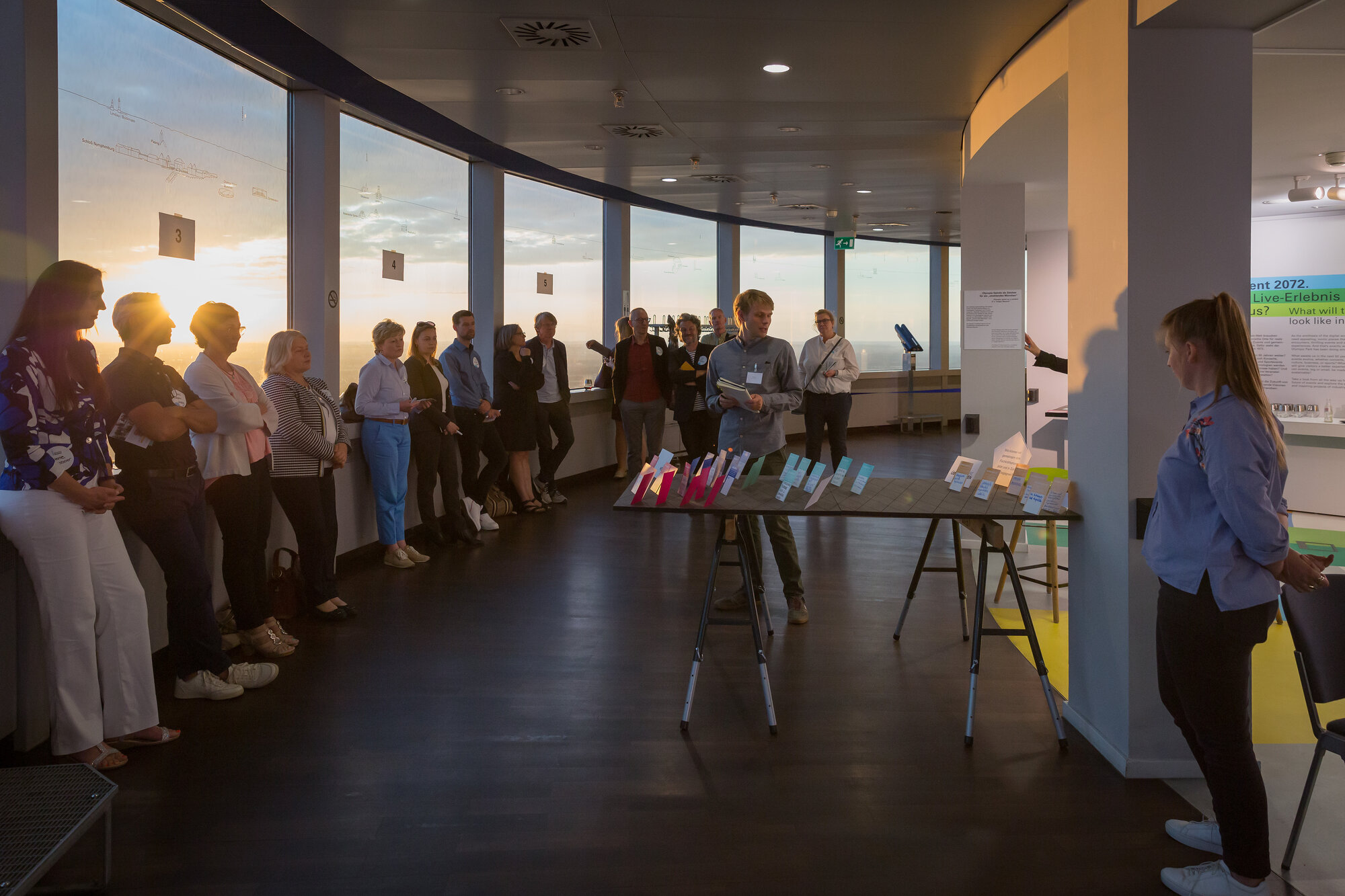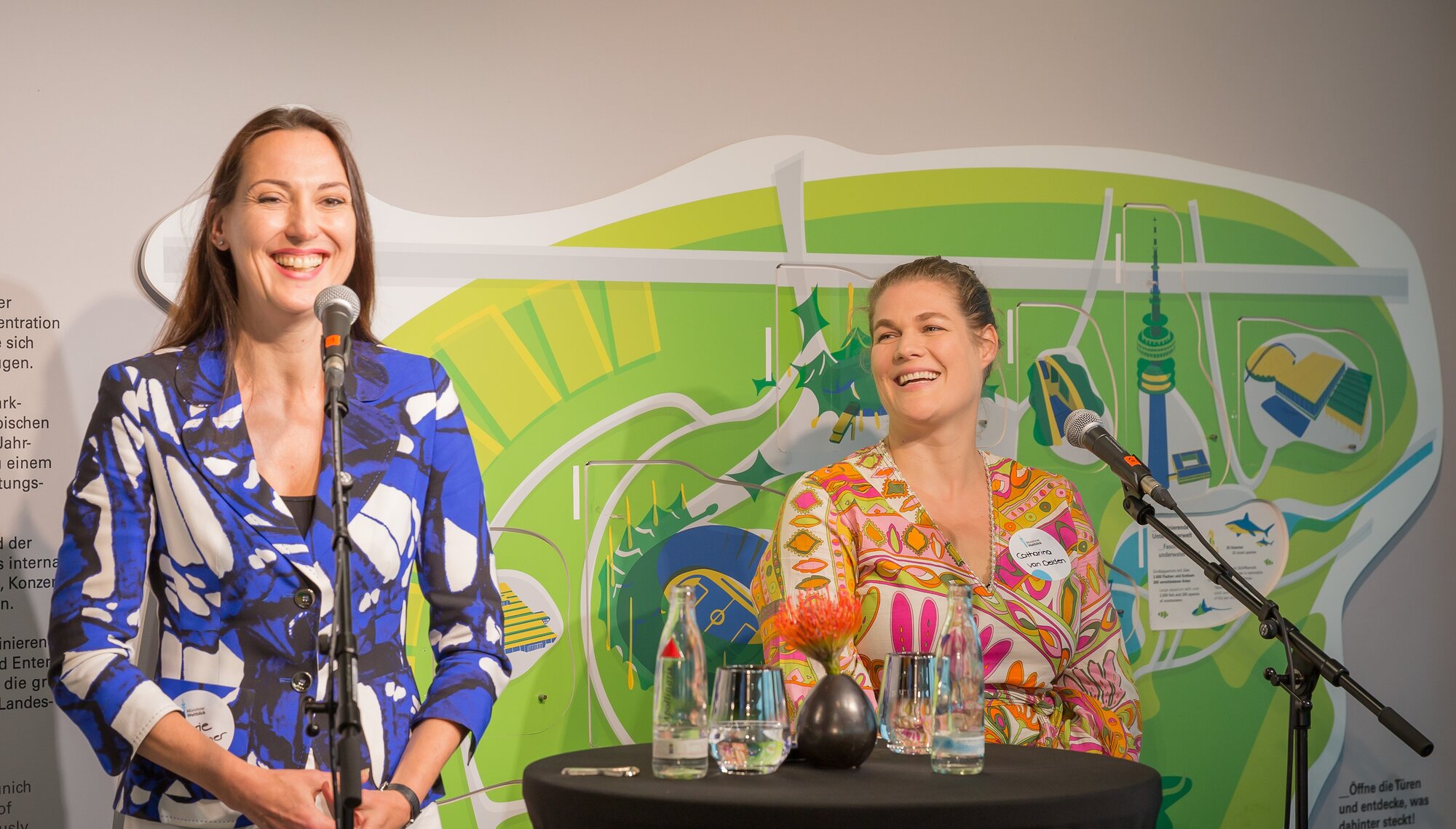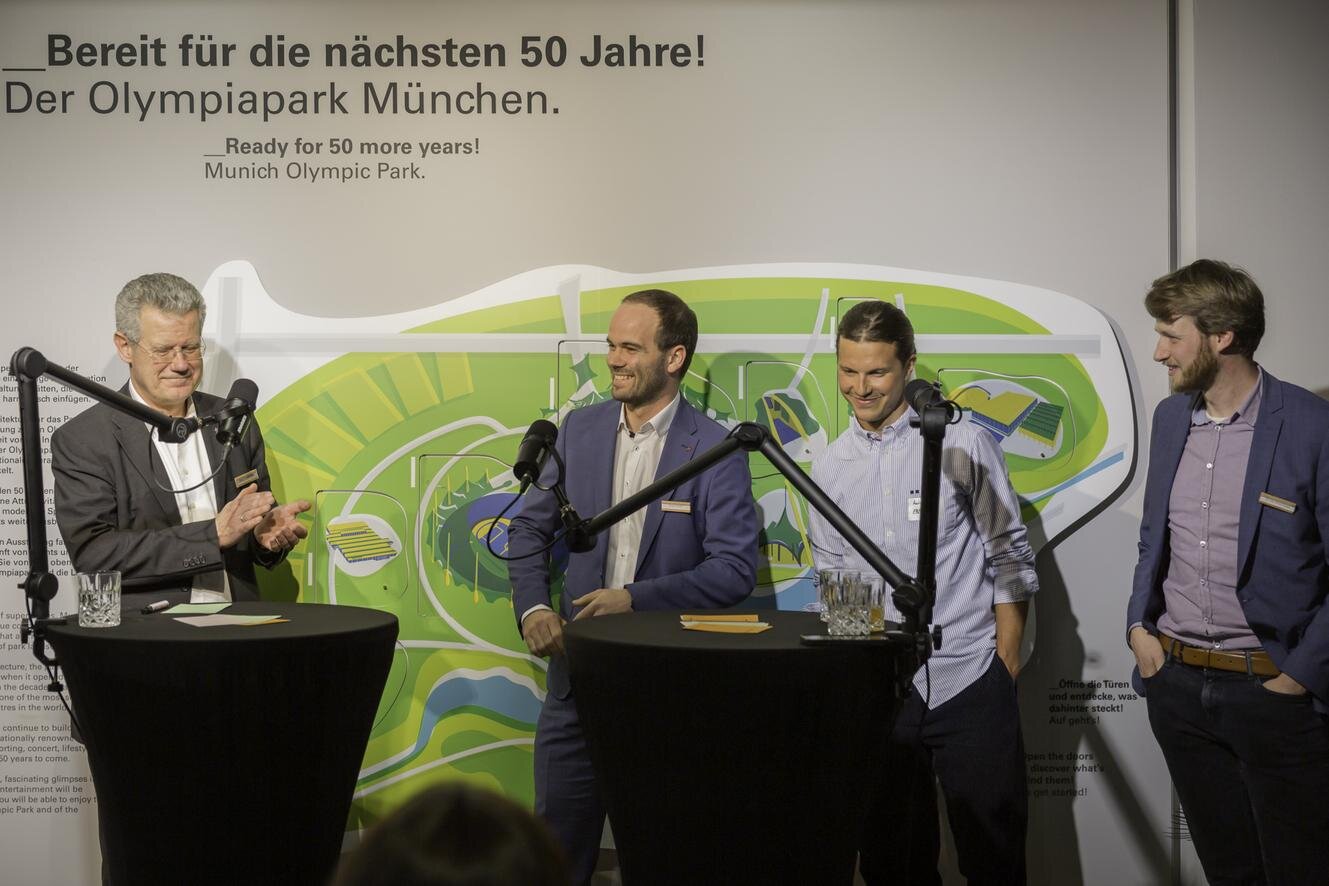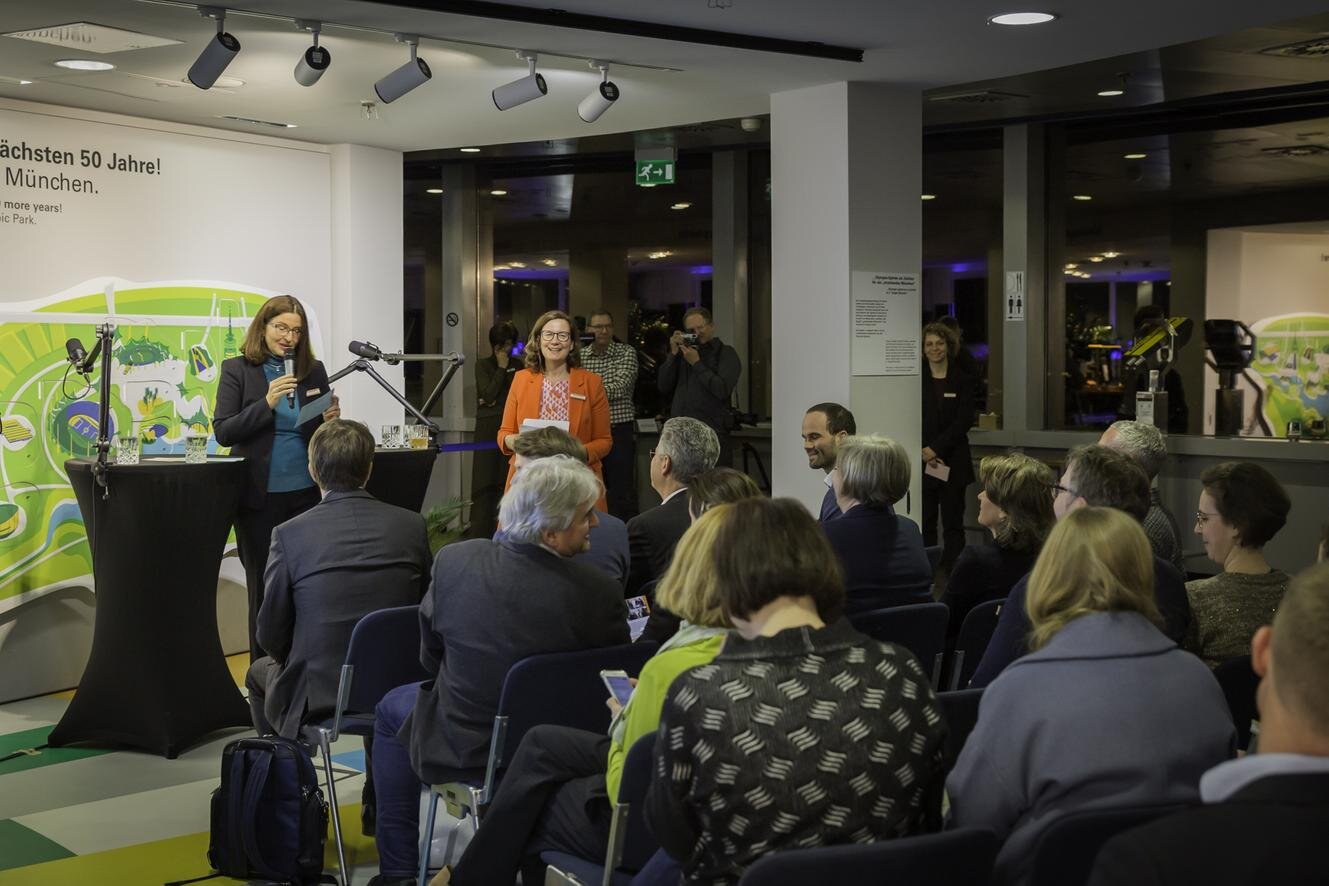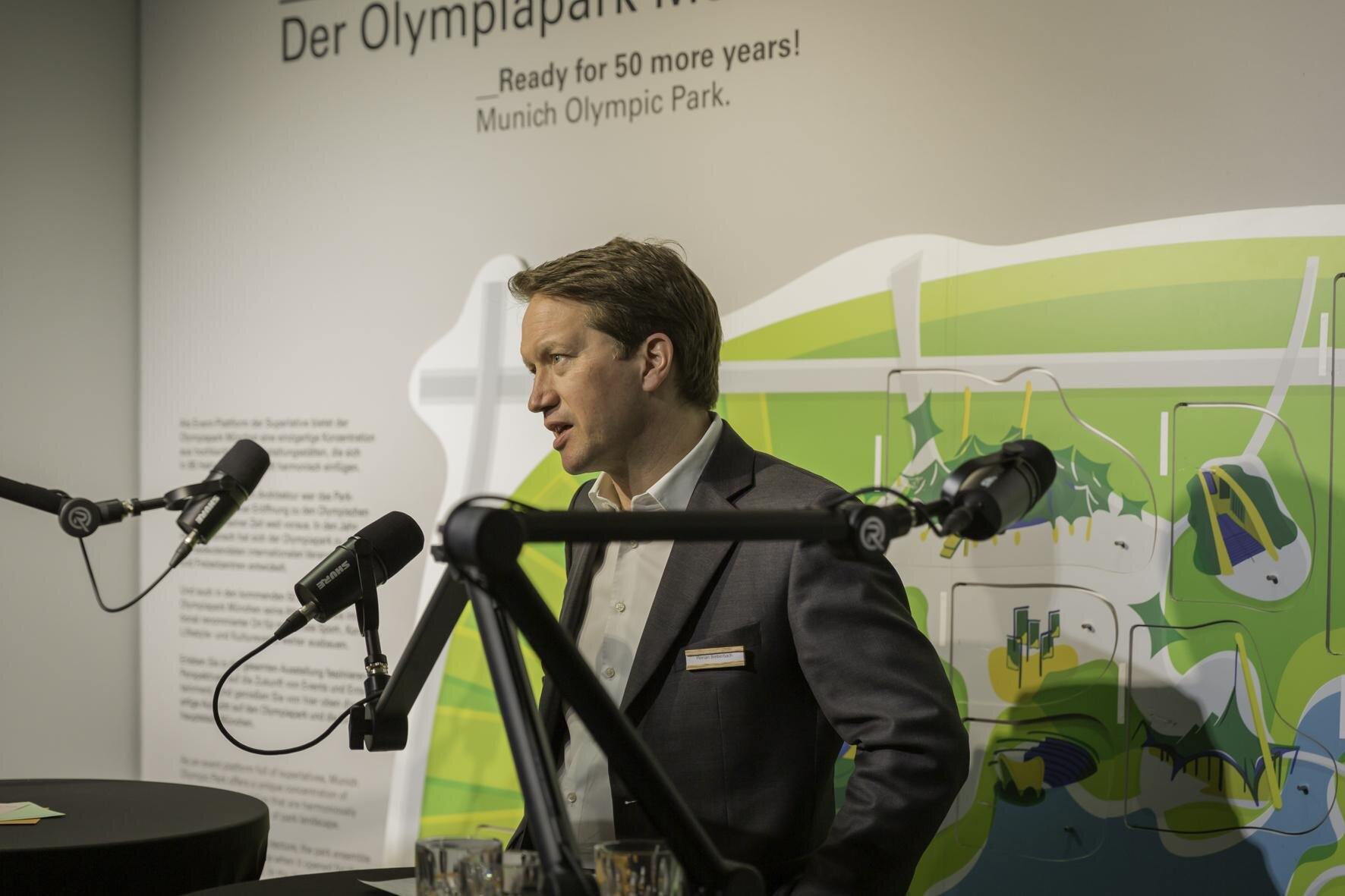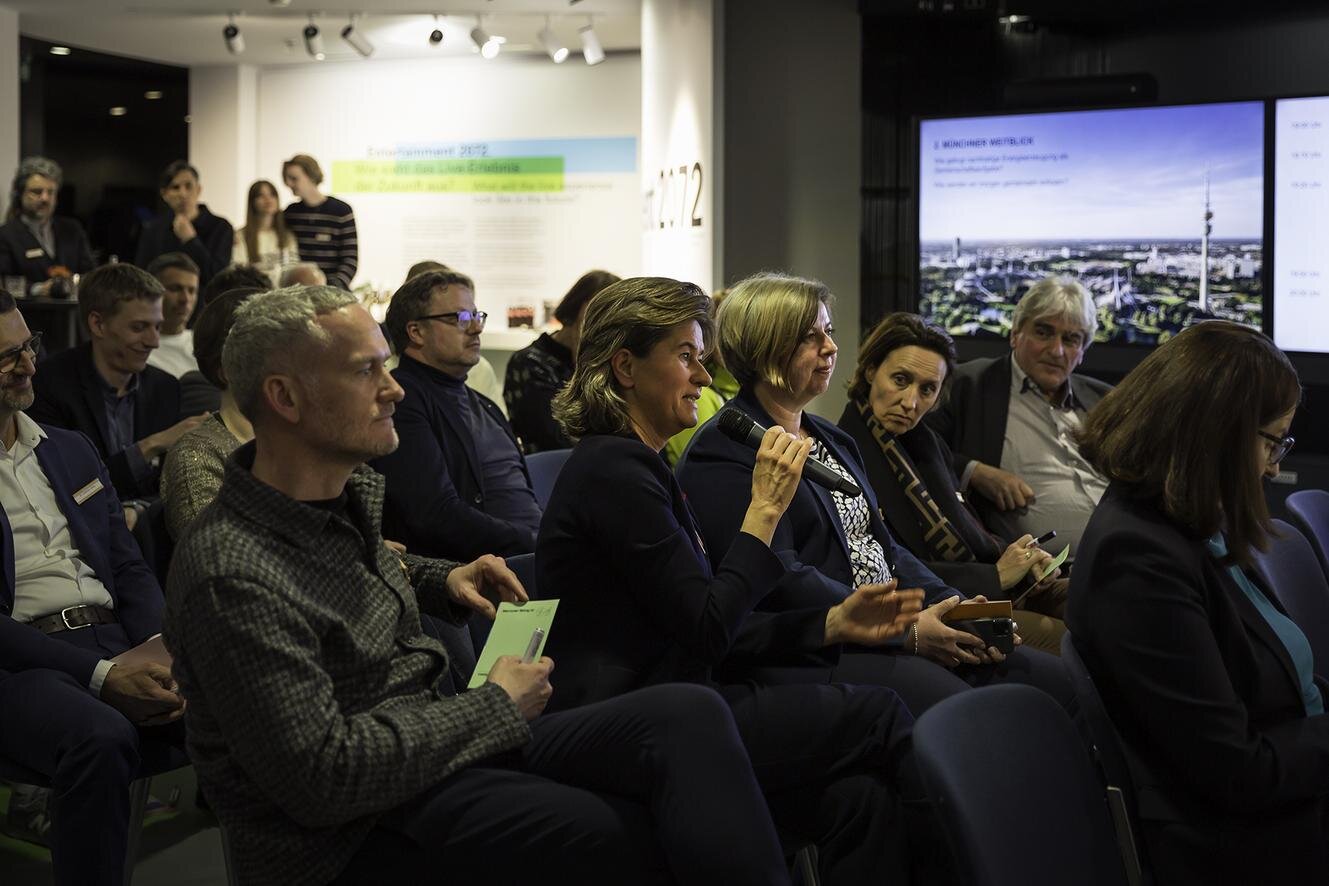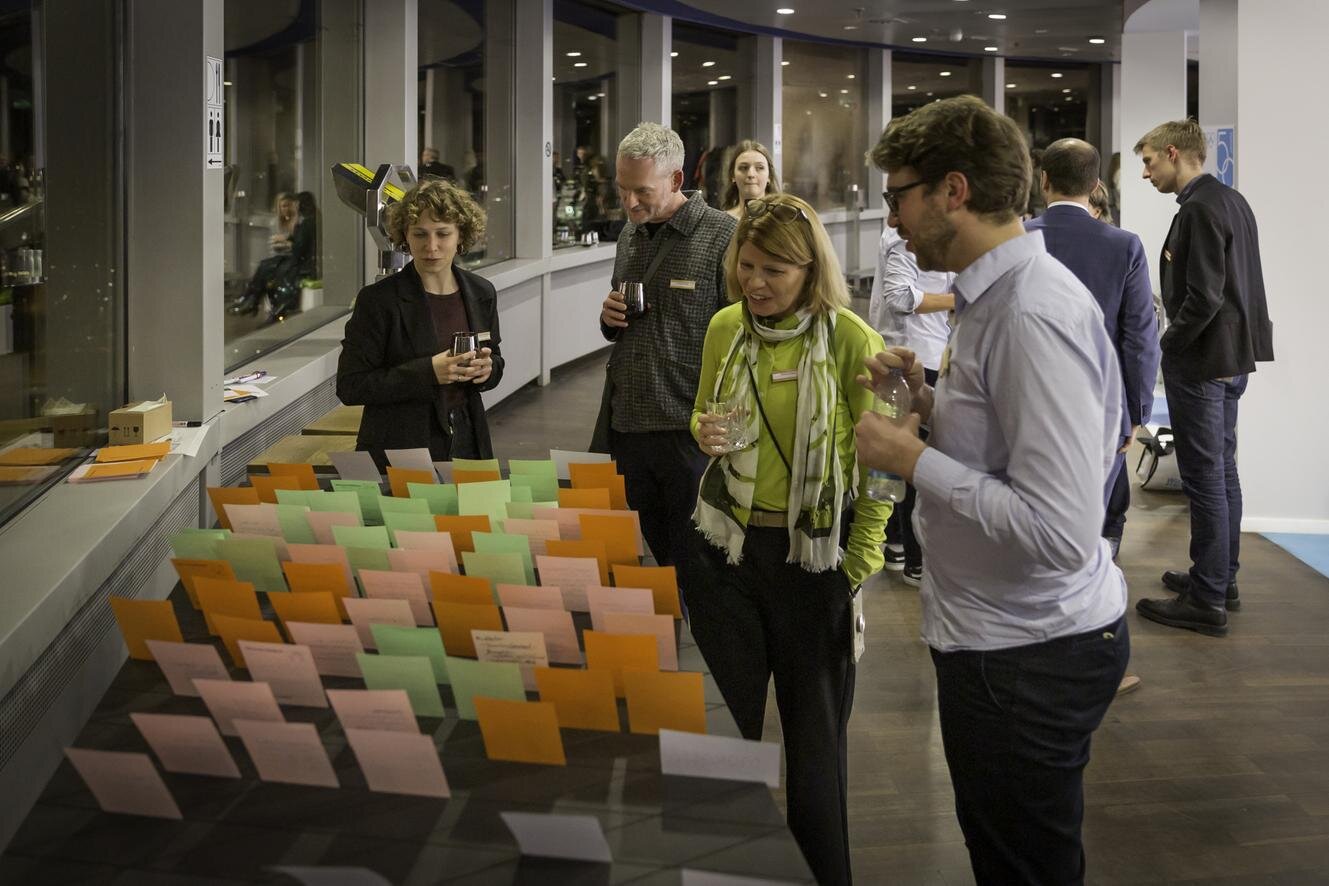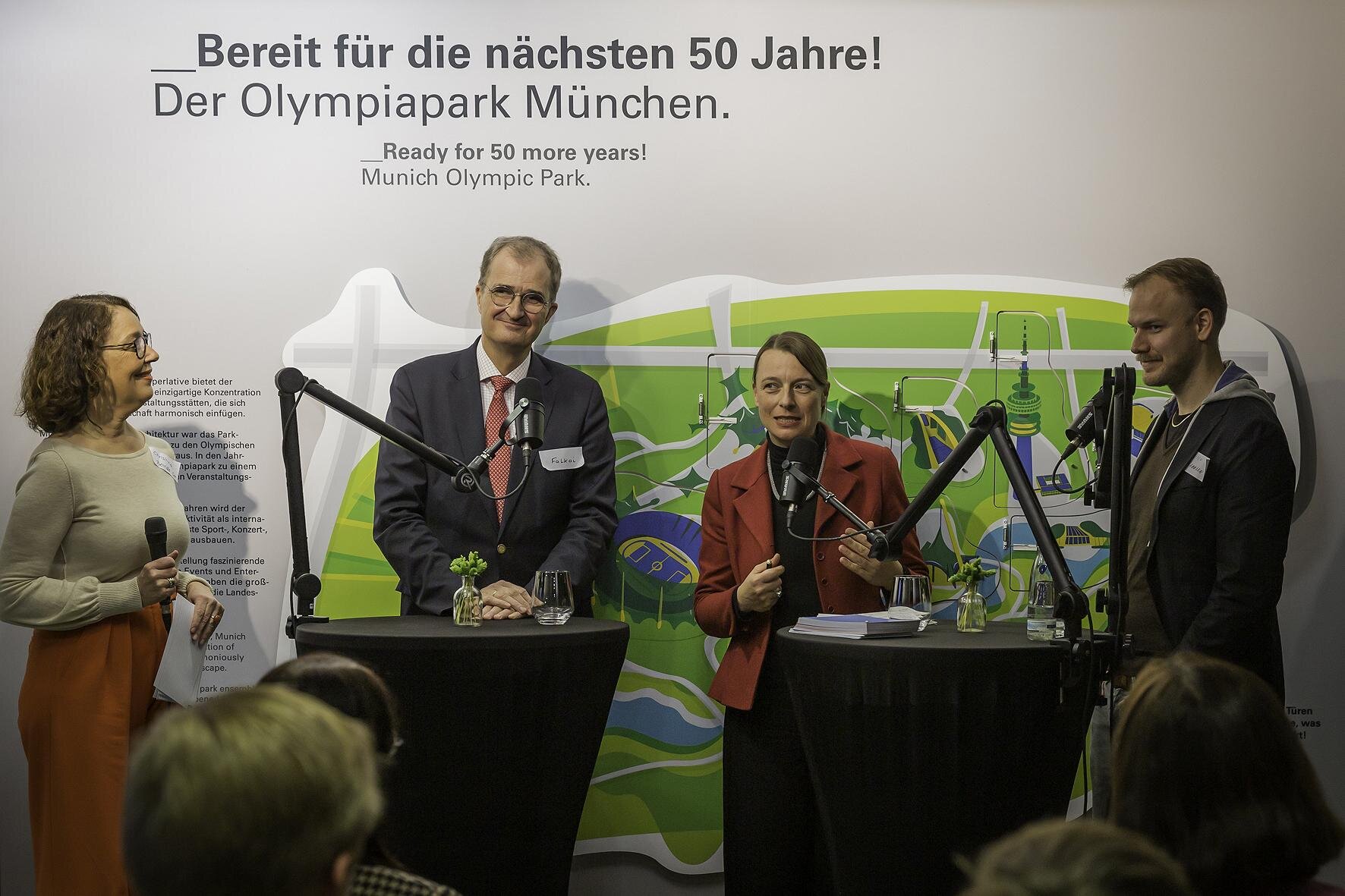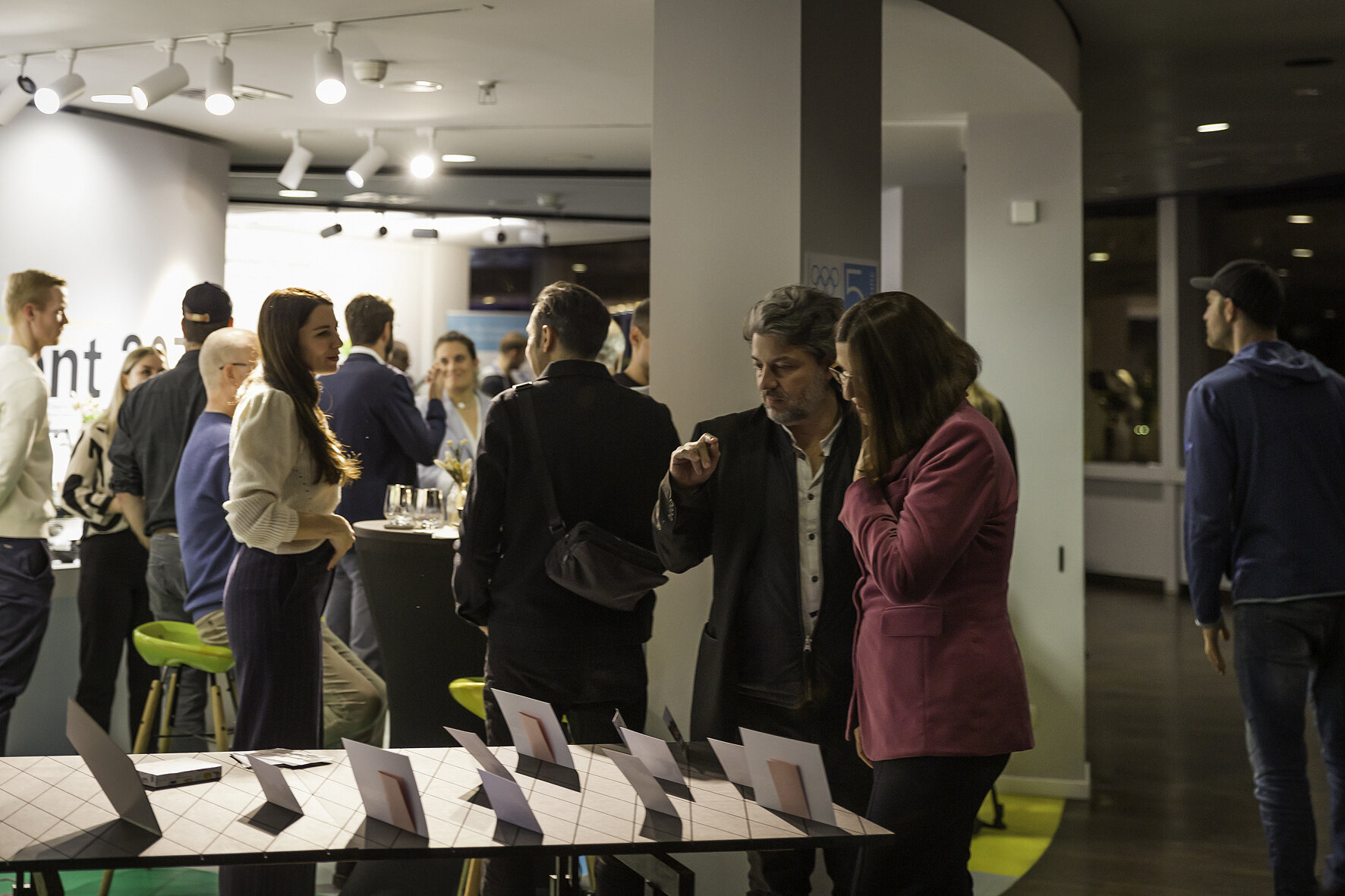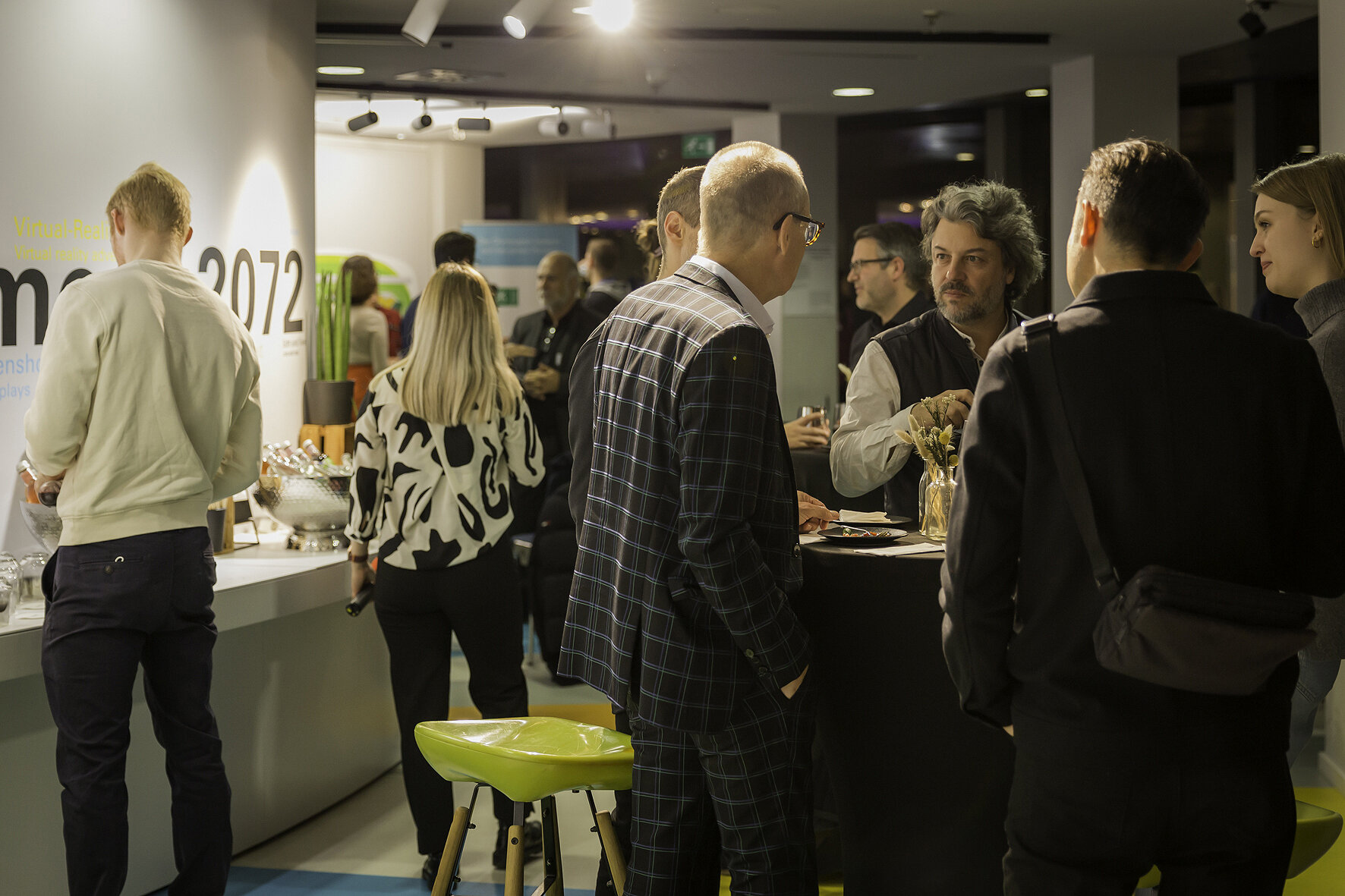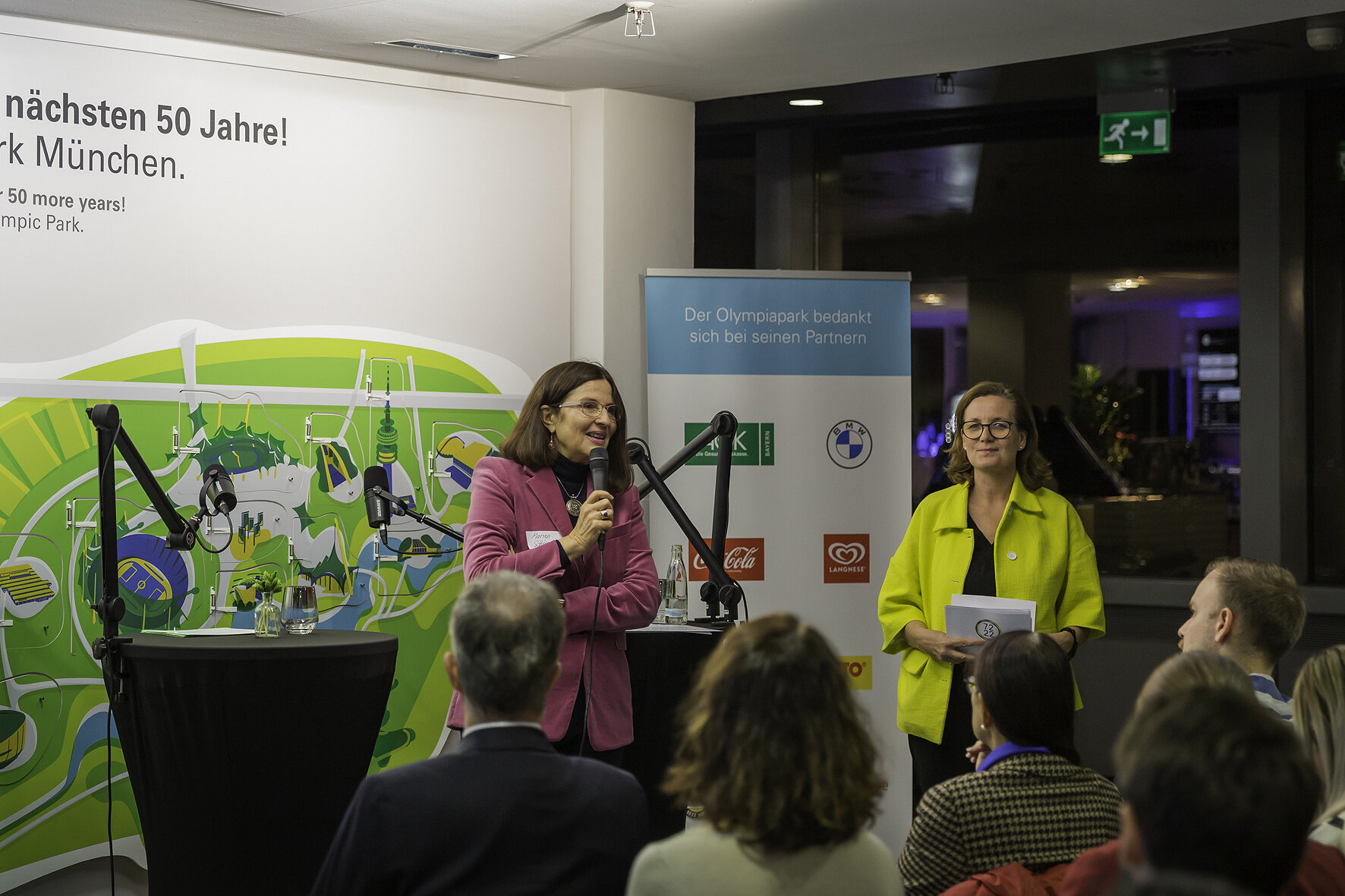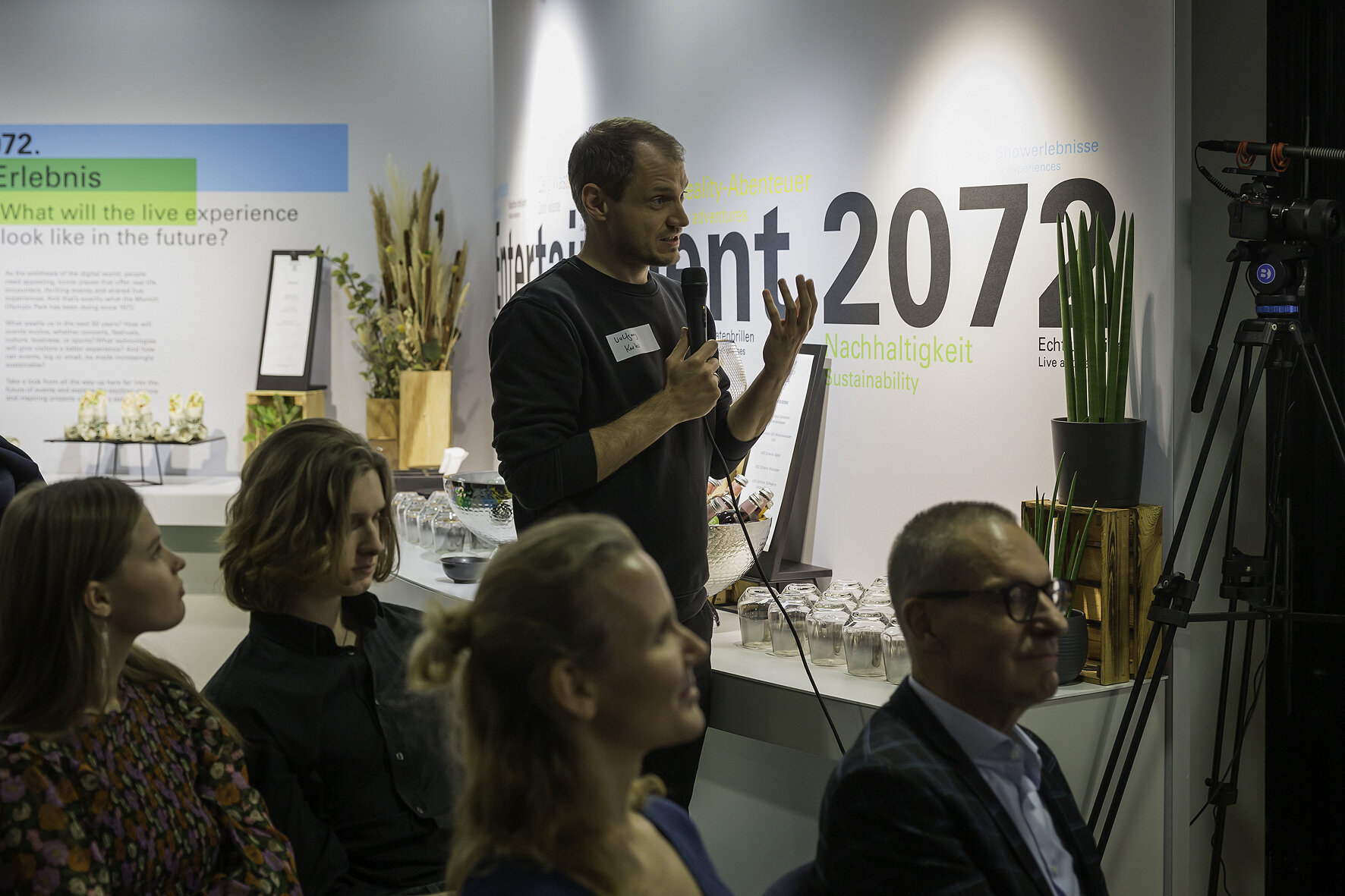4rd Münchner Weitblick, 23 Oktober 2023
A literally moving topic occupied representatives from science, business, local politics and administration at the fourth Munich Weitblick on the future platform of the Olympic Tower. Urban mobility was the focus, or more precisely: a different, sustainable way of dealing with it. "What has to change in our minds so that we can retell mobility?" was how OMG Managing Director Marion Schöne formulated the guiding question of the evening during her welcoming speech.
Malene Freudendal-Pedersen, Professor of Urban Planning, provided the first answers in her keynote speech. The Dane teaches and conducts research for Aalborg University on the Copenhagen campus, but also has a residence in Munich. In a direct mobility comparison of the two cities, she sees a crucial difference: "In Copenhagen, the car is not hierarchically above the bicycle." But instead of demonizing the car and constantly talking about it, she calls for more talk about desirable concepts - such as the "15-minute city" in which people can reach all everyday destinations within fifteen minutes on foot or by bike.
Alain Thierstein, Professor of Spatial Development at the Technical University of Munich, Alexander Bilgeri, who is responsible for sustainability communications at BMW, among other things, and behavioral economist Fabienne Cantner then discussed new perspectives and changes in behavior. "People find it incredibly difficult to change their behavior," the latter emphasized. "That's why you have to make it as easy as possible for them." According to Cantner, social norms and education play an important role here, in addition to incentives: it simply has to be considered cool to use public transportation - and the usually underestimated costs of driving a car have to be clearly pointed out much more often.
BMW spokesman Alexander Bilgeri did not disagree, on the contrary. He, too, calls for making public transport more attractive and does not yet see the switch from the combustion engine to the electric motor as a sufficient rethink in terms of mobility. "However, we should not demonize the car, but intelligently link means of transport." He would like to see more speed, especially beyond the roads, among decision-makers: "We are having discussions today that would have been necessary 30 years ago," he said, referring to the idea of a car-free zone within the old city ring.
Areas without cars also played an important role in the argumentation of spatial developer Prof. Alain Thierstein. He pointed out that five parked cars take up about as much space as a:n average Munich resident uses as living space. "We need mobility-as-a-service, not mobility-as-ownership," he said, advocating city-level strategies rather than narrowly focused reallabor projects like the recent one on Kolumbusstraße: "I propose that in two years we clear all Munich streets of parking on one side and use the space for bikes, cargo bikes and commercial transport."
In the ensuing discussion with the audience, Munich Environment Officer Christine Kugler also advocated using the distribution of public space as a key lever for mobility change. Afterwards, the brainstorming continued with other means. In the interactive "Future Synthesizer" format, all guests were able to put their very personal thoughts on paper - on how mobility in Munich should be told in the future.
Quotes
Marion Schöne
"We should polarize less, but go new ways together, only in this way we create a mobility turnaround!"
Angela Kesselring
"1972 was characterized by an unbridled will to progress and the leadership skills of Hans-Jochen Vogel. That was Munich's last modernization push. In 2022, Munich was the congestion capital."
Malene Freudendal-Pedersen
"I don't have a problem with cars per se. Just with the way we use them and the consequences of that."
"E-cars are often bigger than the vehicles they replace. And many use it more than they used the internal combustion engine before - to the detriment of public transportation."
Fabienne Cantner
"Social norms are very important for mobility behavior. Public transit needs to become as cool as cargo bikes are in some circles right now."
"People completely misjudge how expensive driving actually is."
Alexander Bilgeri, BMW
"The mere switch from the combustion engine to the e-car does not bring about a new mobility behavior. It's not about cheaper e-cars, it's about rethinking mobility!""
"When BMW proposed to make Munich car-free within the Altstadtring in the 1990s, we were kicked out of City Hall with the idea."
Prof. Alain Thierstein, TUM
"It's a huge problem that Munich doesn't have a Ringbahn that connects the subcenters. Twenty years ago, we should have opted for an S-Bahn southern ring instead of the useless second Stammstrecke - in other words, for better access to the region."
"Actually, we don't have a housing problem in Munich, we have a car space problem."
